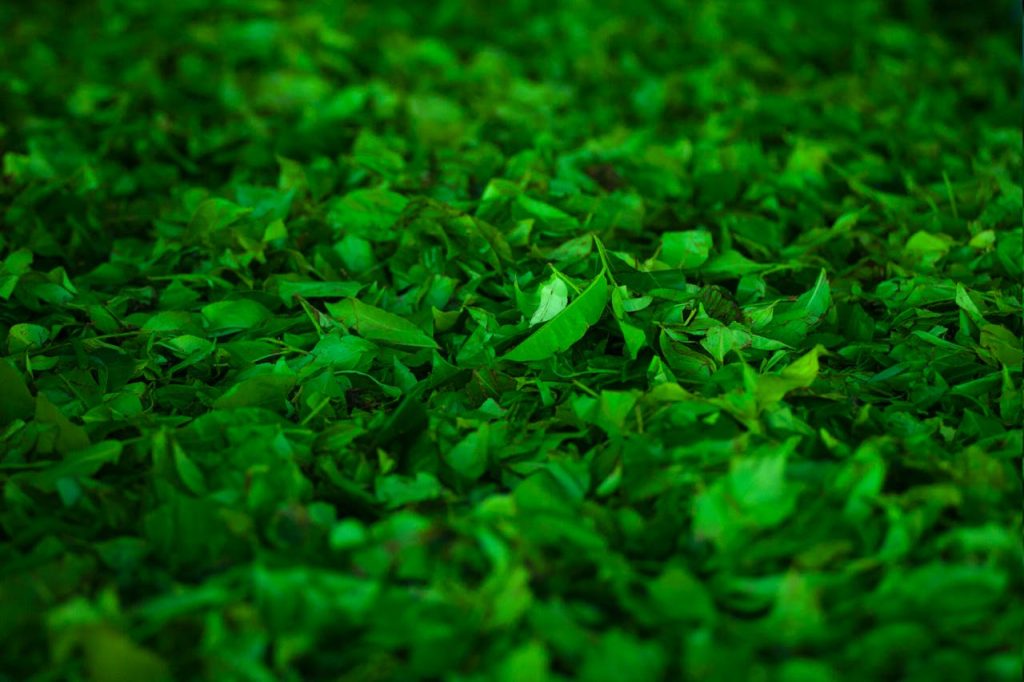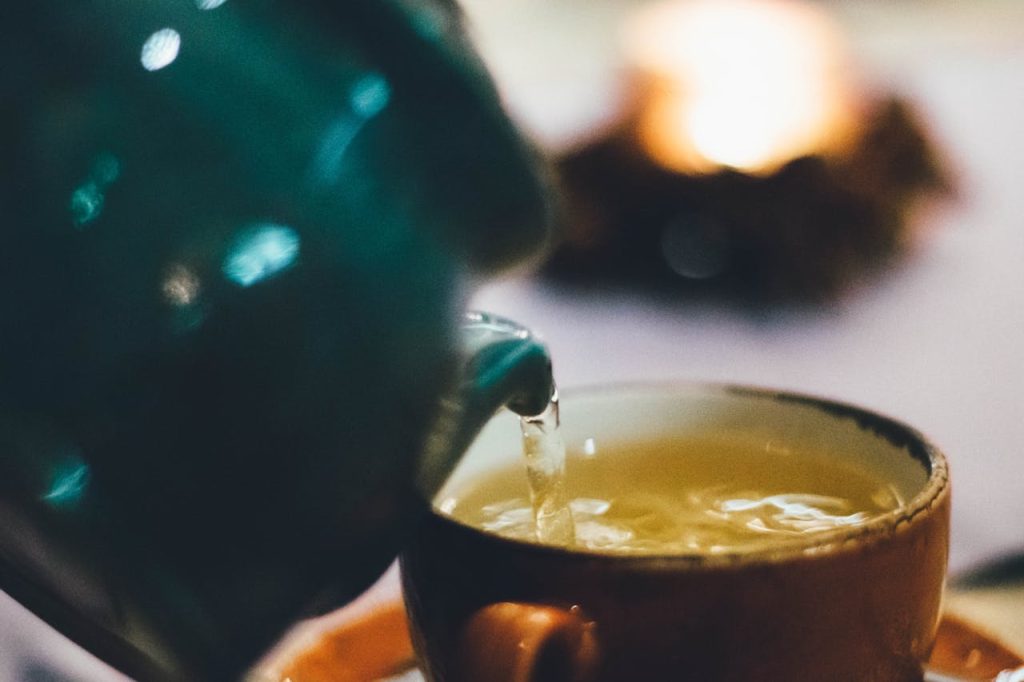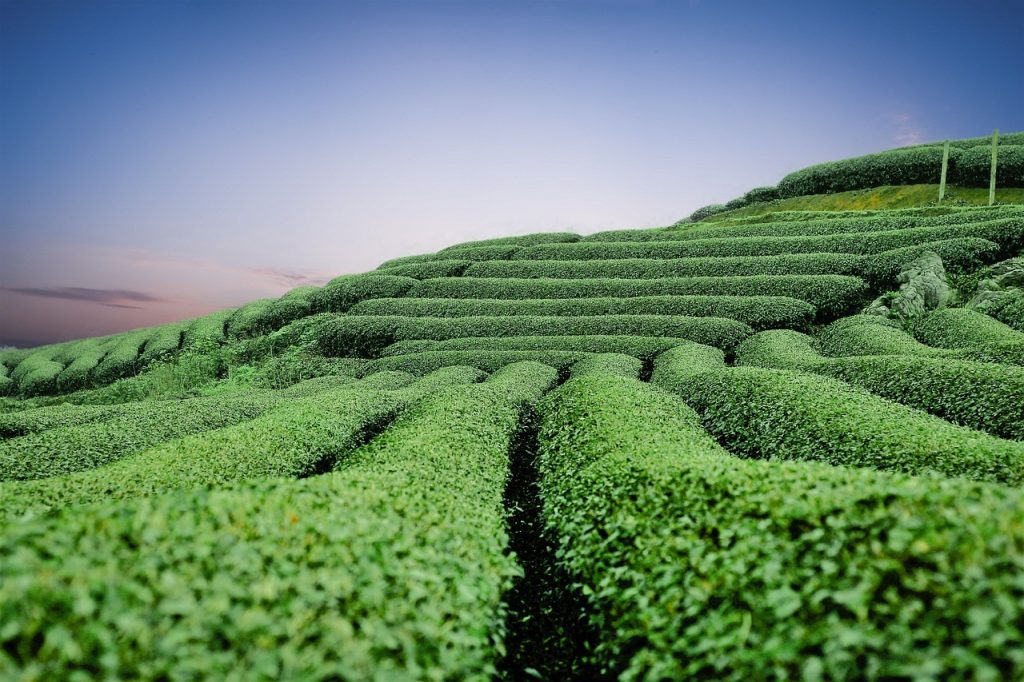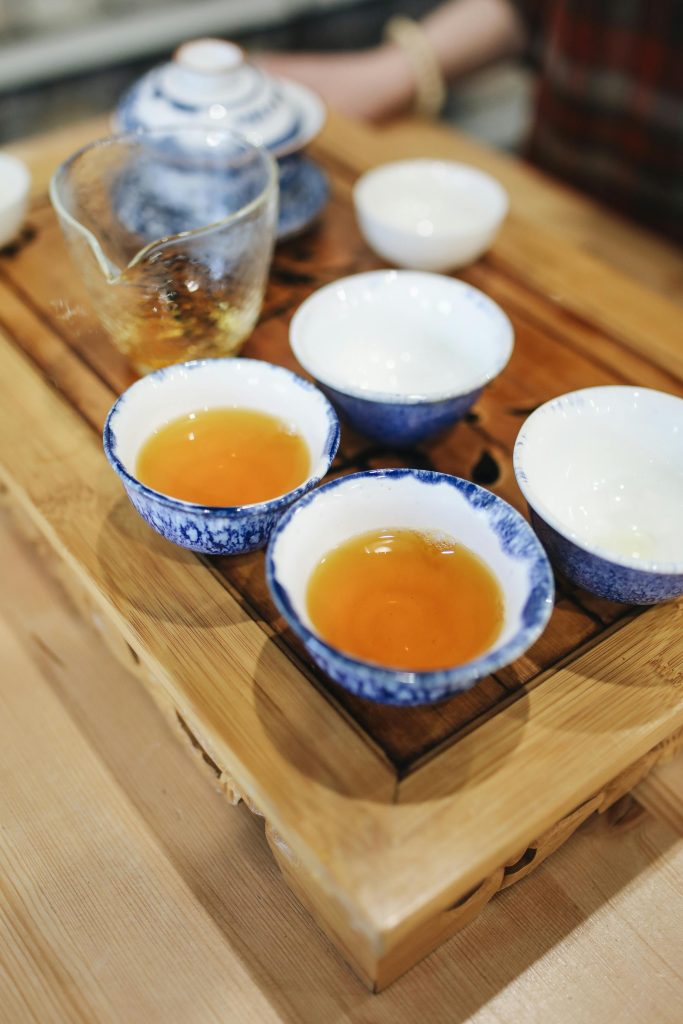Green tea, an ancient beverage, has gained widespread popularity around the world. Originating in China with a history spanning thousands of years, green tea has become a daily choice for many due to its refreshing taste, rich aroma, and various health benefits.
Popularity of Green Tea
Globally, green tea is widely loved for its unique flavor and health benefits. Particularly in Asian countries like China and Japan, green tea is not just a daily drink but also an integral part of local culture and traditions. For example, the Japanese tea ceremony is a cultural art form that elevates the process of tea brewing. Additionally, with increasing health awareness, more Western consumers are turning to green tea as a healthy alternative to coffee and sugary beverages.
Health Benefits of Green Tea
Green tea’s popularity is not only due to its taste but also its significant health benefits. Scientific research shows that green tea is rich in antioxidants, especially catechins, which have various positive effects on human health.
Antioxidant Properties
The polyphenolic compounds in green tea have powerful antioxidant capabilities that can neutralize free radicals, reducing cellular damage and helping to prevent chronic diseases such as heart disease and cancer.
Promotes Cardiovascular Health
Studies indicate that regular consumption of green tea can lower cholesterol levels and blood pressure, reducing the risk of heart disease and stroke.
Weight Loss and Metabolism
The caffeine and catechins in green tea can boost metabolism and promote fat burning, aiding in weight management.
Enhances Brain Function
The combination of caffeine and the amino acid L-theanine in green tea can improve brain alertness, focus, and memory while also having a relaxing effect, reducing stress and anxiety.
The Importance of Brewing Time on Health Effects
While green tea has numerous health benefits, the method of brewing, especially the brewing time, plays a crucial role in its health efficacy.
Scientific Basis of Brewing Time
Release of Active Ingredients
The length of brewing time directly affects the release of beneficial components from the tea leaves. Too short a brewing time may not fully release polyphenols and catechins, reducing their health effects. Conversely, too long a brewing time can lead to excessive release of caffeine and tannins, increasing bitterness and potentially harming gastrointestinal health.
Caffeine Content
Caffeine is a significant component of green tea. While moderate intake can be stimulating, excessive caffeine can cause anxiety, insomnia, and palpitations. The longer the brewing time, the higher the caffeine concentration in the tea. Therefore, managing the appropriate brewing time can help avoid excessive caffeine intake.
Taste and Flavor
Brewing time also affects the taste and flavor of green tea. An appropriate brewing time ensures a fresh and pleasant tea infusion, while an extended brewing time can result in bitterness, affecting the drinking experience.

Beneficial Components and Health Benefits of Green Tea
Green tea, a popular health beverage, is rich in various beneficial components, including tea polyphenols, caffeine, and amino acids. These components have numerous positive effects on human health, such as antioxidant properties, brain stimulation, and cardiovascular health promotion. Below is a detailed introduction to these major beneficial components in green tea and their specific health benefits.
1. Tea Polyphenols
Tea polyphenols are the most important class of antioxidants in green tea, primarily including catechins, flavonoids, and phenolic acids. Among them, catechins are the most abundant and biologically active components of tea polyphenols.
Health Benefits
Antioxidant Properties: Tea polyphenols have strong antioxidant capabilities that can neutralize free radicals in the body, reducing oxidative damage to cells and tissues, thus preventing aging and various chronic diseases such as cardiovascular diseases, diabetes, and cancer.
Anti-inflammatory Effects: Tea polyphenols can inhibit the production of inflammatory factors, reducing inflammation and helping to alleviate diseases related to chronic inflammation.
Cardiovascular Protection: Tea polyphenols help lower blood lipids, reduce blood pressure, and improve vascular function, thereby reducing the risk of cardiovascular diseases.
2. Caffeine
The caffeine content in green tea is relatively low but still has significant physiological effects. Caffeine is a natural stimulant that can affect the central nervous system.
Health Benefits
Brain Stimulation: Caffeine can increase brain alertness and concentration, improving cognitive functions and helping to enhance work and study efficiency.
Enhanced Physical Performance: Caffeine can promote fat oxidation, providing energy to the body, and increasing endurance, thereby improving athletic performance.
Metabolism Boost: Caffeine can accelerate metabolism, increase energy expenditure, and aid in weight management and weight loss.
3. Amino Acids (e.g., Theanine)
Theanine is a unique amino acid found in green tea, with distinctive physiological effects. Unlike caffeine, theanine primarily has relaxing and calming effects.
Health Benefits
Mood Relaxation: Theanine can promote the production of alpha waves in the brain, making people feel relaxed and happy, helping to reduce stress and anxiety.
Improved Sleep Quality: Although theanine does not have hypnotic effects, it can improve sleep quality by relaxing the body and mind, helping people fall asleep.
Enhanced Cognitive Function: Theanine works synergistically with caffeine to improve attention and memory while keeping the mood calm, avoiding excessive excitement.
4. Vitamins and Minerals
Green tea is also rich in various vitamins and minerals, such as vitamin C, B vitamins, potassium, and magnesium, which are essential for maintaining overall health.
Health Benefits
Immune Boost: Vitamin C is a potent antioxidant that can enhance immune system function and increase the body’s resistance.
Metabolic Support: B vitamins participate in energy metabolism, helping the body effectively use nutrients and maintain normal physiological functions.
Electrolyte Balance Regulation: Minerals like potassium and magnesium help maintain electrolyte balance in the body, supporting the normal functioning of the heart, muscles, and nervous system.

Factors Influencing Green Tea Brewing Time
Green tea is a beverage that requires careful brewing techniques, and its optimal taste and health benefits are closely related to the brewing time. The main factors influencing green tea brewing time include the type and quality of the tea leaves, the water temperature, and the amount of tea used. This article will explore these factors in detail and their specific impact on brewing time.
1. Type and Quality of Tea Leaves
Green tea comes in many varieties, each with different requirements for brewing time depending on the shape, size, and tenderness of the leaves.
Longjing Tea
Longjing tea, one of China’s most famous green teas, is known for its flat leaves and fragrant aroma. Due to the tenderness of Longjing tea leaves, a short brewing time is usually sufficient to release its unique aroma and fresh taste.
Recommended Brewing Time: 1-2 minutes
Biluochun Tea
Biluochun tea leaves are curled in a spiral shape and rich in tender buds. When brewed, it produces a fragrant tea infusion. Although the leaves are tender, they are slightly more resistant to brewing than Longjing.
Recommended Brewing Time: 1.5-2.5 minutes
Maojian Tea
Maojian tea leaves are slender and rich in tea hairs, with a fresh taste. Due to the fine leaves and abundant tea hairs, the brewing time can be slightly longer.
Recommended Brewing Time: 2-3 minutes
Sencha Tea
Sencha is a representative of Japanese green tea, with relatively flat leaves suitable for quick brewing at high temperatures.
Recommended Brewing Time: 30 seconds – 1 minute
2. Water Temperature
Water temperature is another crucial factor affecting green tea brewing time. Both overly high and low water temperatures can impact the extraction of the tea and its flavor.
High Temperature Water (80-90°C)
High temperature water can quickly release the active ingredients in the tea leaves but may also make the tea overly bitter, especially for delicate green tea leaves. High temperature brewing is suitable for more robust tea leaves such as Maojian and Sencha.
Impact: Shortens brewing time, recommended to complete within 1-2 minutes to avoid bitterness.
Low Temperature Water (60-75°C)
Low temperature water is suitable for delicate tea leaves like Longjing and Biluochun. Low temperature brewing can fully release the tea’s aroma and sweetness while avoiding the extraction of excessive bitter substances.
Impact: Lengthens brewing time, generally recommended for 2-3 minutes to ensure optimal aroma and taste.
3. Amount of Tea Leaves
The amount of tea leaves used also significantly affects brewing time. Using too many or too few tea leaves can alter the concentration and flavor of the tea.
Greater Amount of Tea Leaves
When using more tea leaves, the concentration of the tea increases quickly, necessitating a shorter brewing time to prevent the tea from becoming too strong and bitter.
Recommendation: Reduce brewing time to 1-2 minutes.
Lesser Amount of Tea Leaves
Using fewer tea leaves results in a slower increase in tea concentration, requiring a longer brewing time to ensure the release of the tea’s active ingredients.
Recommendation: Extend brewing time to 2-3 minutes.

Recommended Brewing Time for Green Tea
Green tea is renowned for its rich aroma, refreshing taste, and numerous health benefits. To fully appreciate these qualities, it is crucial to master the correct brewing time. This article provides general brewing time recommendations based on various factors and offers personalized adjustments for different needs.
General Brewing Time Recommendations
Considering the type of tea leaves, water temperature, and amount of tea used, here are general brewing time suggestions:
- Type of Tea Leaves: Tender tea leaves (e.g., Longjing, Biluochun) require a shorter brewing time, while older tea leaves (e.g., Maojian, Sencha) can be brewed longer.
- Water Temperature: Generally, use water at 80-85°C to brew green tea. This temperature is optimal for releasing the tea’s aroma without making it bitter.
- Amount of Tea: For a 200 ml cup, use 2-3 grams of tea leaves.
General Brewing Time Recommendations:
- Tender Tea Leaves (e.g., Longjing, Biluochun): 1.5-2 minutes
- Older Tea Leaves (e.g., Maojian, Sencha): 2-3 minutes
Personalized Brewing Time Adjustments
To meet different preferences, the brewing time of green tea can be adjusted to achieve the desired taste and health benefits.
1. For Optimal Taste
If your main goal is to enjoy the best taste of green tea, here are specific brewing time recommendations based on different types of tea and water temperatures:
- Longjing Tea:
- Water Temperature: 80°C
- Brewing Time: 1-1.5 minutes
- Biluochun Tea:
- Water Temperature: 75-80°C
- Brewing Time: 1.5-2 minutes
- Maojian Tea:
- Water Temperature: 85°C
- Brewing Time: 2-2.5 minutes
- Sencha Tea:
- Water Temperature: 85-90°C
- Brewing Time: 30 seconds – 1 minute
These times ensure that the aroma and taste of the tea are optimal, avoiding the release of excessive bitter substances.
2. For Health Benefits
If you are more focused on the health benefits of green tea, such as antioxidants and weight loss, consider adjusting the brewing time as follows:
Extended Brewing Time: Slightly extending the brewing time can increase the release of tea polyphenols and catechins. However, be cautious not to brew too long to avoid increased bitterness and caffeine content.
- Tender Tea Leaves: 2-2.5 minutes
- Older Tea Leaves: 3-4 minutes
Using Slightly Higher Water Temperature: Water at 85-90°C can more effectively extract beneficial components from the tea leaves. However, avoid using too high a temperature for tender tea leaves.
3. To Reduce Caffeine Intake
If you wish to reduce caffeine intake, you can use the following brewing times and methods:
Shorter Brewing Time: Reducing the brewing time can decrease the release of caffeine.
- Tender Tea Leaves: 1 minute
- Older Tea Leaves: 1.5-2 minutes
Low Temperature Brewing: Using water at a lower temperature (60-70°C) can reduce the extraction of caffeine and tannins while retaining most of the antioxidant components.
4. Multiple Infusions
For some high-quality green teas, you can use multiple infusions, gradually extending the brewing time for each infusion to experience different tastes and layers:
- First Infusion:
- Tender Tea Leaves: 1 minute
- Older Tea Leaves: 1.5 minutes
- Second Infusion:
- Tender Tea Leaves: 1.5 minutes
- Older Tea Leaves: 2 minutes
- Third Infusion:
- Tender Tea Leaves: 2 minutes
- Older Tea Leaves: 3 minutes
This method allows you to fully utilize the tea leaves and enjoy the subtle changes brought by different infusions.
